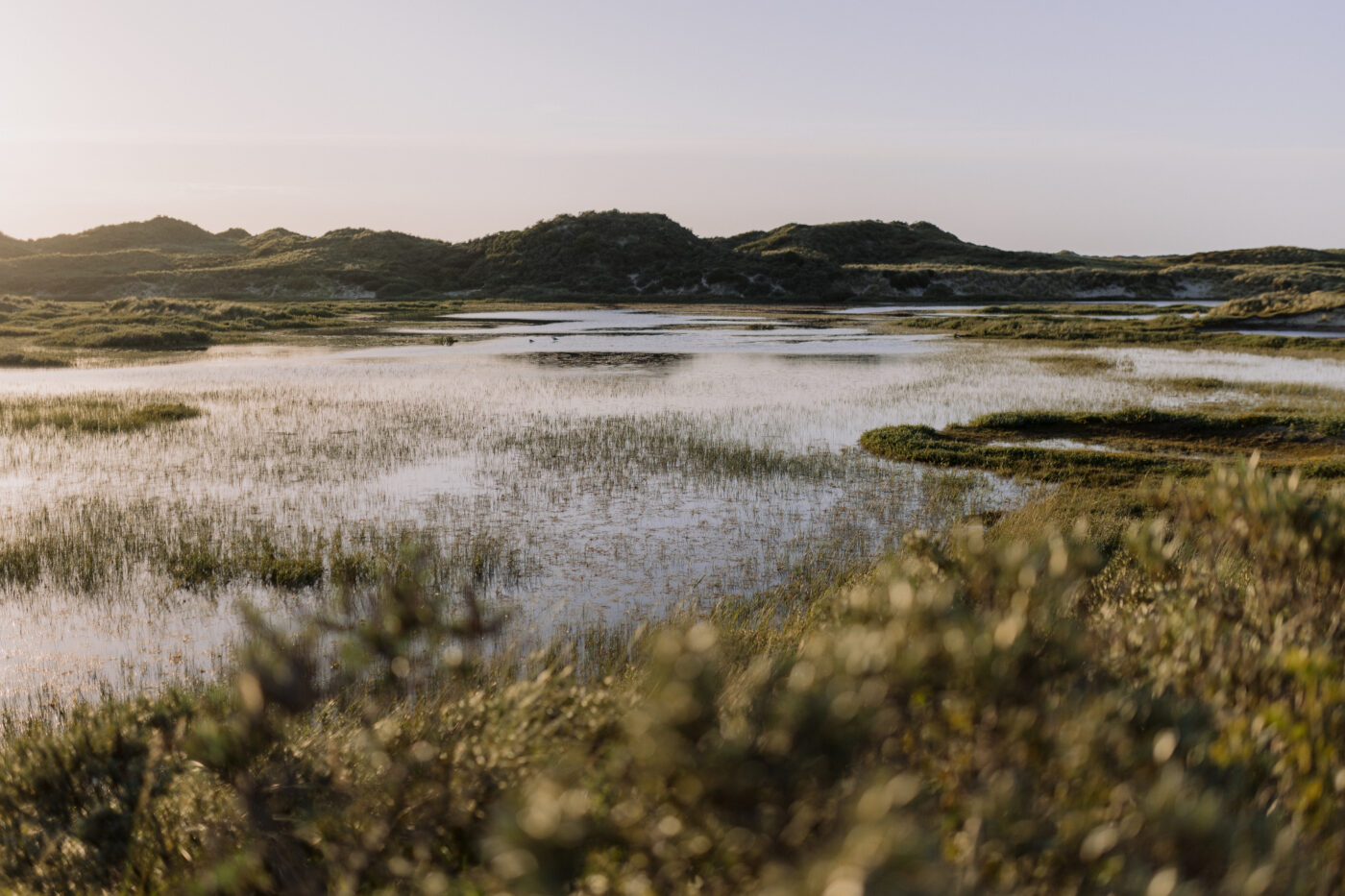Oerol Festival partly takes place in and around Natura 2000 areas on Terschelling. This means that we not only operate from our own intrinsic motivation, but we also have to adhere to the strictest standards and regulations to obtain a nature permit.
At Oerol, nature takes centre stage. We give more space to natural and ecological values. To achieve this, Oerol has partnered with Staatsbosbeheer (the Dutch State Forestry Commission), ecologists, and artists to create an Ecological Compass, which was first put together in 2022. This document clearly outlines for all employees, volunteers, artists, partners, and visitors how we operate, with the goal of collaborating with our natural environment in the best way possible. The Compass provides guidelines on both artistic and practical aspects.
‘You have to dare to leave it to nature. If you start a battle with nature, you've already lost. Nature is always stronger than theatre.’ Joop Mulder, founder of Oerol Festival
We embrace the ambition to be more mindful of our surroundings. Every year, we continue to reduce waste, promote recycling, use local and sustainable food, minimise transportation, and use grid and/or green energy. With the support of our partners, we remain committed to these initiatives, both practically and in terms of raising awareness.

At Oerol, we are aware of the vulnerability of the environment and the value of the birds, other animals, and vegetation that make this landscape so special. It is our belief that greater awareness will lead to more sustainable behaviour.
In the implementation of our sustainable festival, we collaborate with external advisor Rob van Wegen. He assists us in implementing green initiatives. We also use the Theatre Green Book, a practical guide that helps us reduce our ecological footprint.
To streamline our sustainability efforts, we have developed a roadmap with a multi-year plan for sustainability. This allows us to gradually reduce our environmental impact and make a positive contribution to our surroundings. We annually monitor our CO2 emissions, to measure and evaluate our progress. This enables us to track our efforts, adjust our goals as needed, and provide transparency about our environmental performance.
The roadmap for the period 2024 to 2028 is a collection of wishes and necessary adjustments of the festival with the aim of further sustainability. Some to-do’s are:
- Alongside sharing our ecological values with creators and staff, we also engage in critical discussions with partners and suppliers and revise where possible.
- Research into dry/vacuum toilets is being conducted.
- We collaborate with Terschelling waste companies for the use of composting machines and efficient waste processing.
- The public is made aware of the emissions from their transportation choices, with a focus on promoting the use of public transport.
- We avoid the use of generators powered by fossil fuels.
- Artists are encouraged to use less material.
- We aim to develop reusable/circular merchandise.
- Crew catering and public catering are aligned.
- A small-scale local and organic water purification system is being implemented at the festival site.
- We strive for circular waste processing on Terschelling.
- Collaborations with companies related to the fossil fuel industry are being reviewed or terminated.
- We collaborate with other events on Terschelling to make material sharing more efficient.